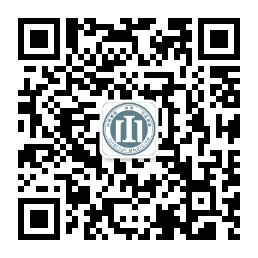目的探讨阿托伐他汀联合替罗非班治疗急性冠状动脉综合征(ACS)伴心律失常患者的疗效及对患者心肌酶谱、炎症因子的影响。方法选择2018年1月至2019年9月我院收治的ACS伴心律失常患者96例,采用随机数字法分为两组,每组48例。两组患者均给予常规药物(阿托伐他汀等)及经皮冠脉介入(PCI)治疗;观察组患者在此基础上,在PCI术中、术后加用替罗非班治疗。比较两组患者的临床疗效;比较两组患者治疗前后的血清心肌酶谱及炎症因子水平;比较两组患者治疗期间的不良反应发生情况。结果治疗3个月,观察组患者的治疗总有效率(93.8%)显著高于对照组(79.2%),差异有统计学意义(P<0.05)。治疗前,两组患者的血清肌酸激酶(CK)、肌酸激酶同工酶(CK-MB)、超敏C-反应蛋白(hs-CRP)、白细胞介素-6(IL-6)水平比较,差异无统计学意义(P>0.05);治疗3个月后,观察组患者的CK、CK-MB、hs-CRP、IL-6水平均显著低于对照组,差异有统计学意义(P<0.05)。治疗期间两组患者的不良反应发生率比较差异无统计学意义(P>0.05)。结论阿托伐他汀联合替罗非班治疗ACS伴心律失常患者疗效确切,可有效地抑制炎症反应,减轻心肌细胞损伤,治疗安全性高。
当前位置:首页 / 阿托伐他汀联合替罗非班治疗ACS伴心律失常患者的疗效及对心肌酶谱、炎症因子的影响▲
论著
|
更新时间:2021-01-11
|
阿托伐他汀联合替罗非班治疗ACS伴心律失常患者的疗效及对心肌酶谱、炎症因子的影响▲
Efficacy of atorvastatin combined with tirofiban in the treatment of patients with ACS combined with arrhythmia and its influence on myocardial enzymes and inflammatory factors
内科 202015卷06期 页码:665-668
作者机构:商丘市第一人民医院心血管内三科,河南省商丘市476100
基金信息:▲基金项目:河南省科技攻关计划项目(201702333)
- 中文简介
- 英文简介
- 参考文献
ObjectiveTo explore the efficacy of atorvastatin combined with tirofiban in the treatment of patients with acute coronary syndrome (ACS) combined with arrhythmia, and its influence on the myocardial enzymes and inflammatory factors. MethodsA total of 96 patients with ACS combined with arrhythmia admitted to our hospital from January 2018 to September 2019 were selected, and they were divided into two groups by the random number method, with 48 cases in each group. Both groups of patients were given conventional medicines (atovastatin etc.) and percutaneous coronary intervention (PCI) for treatment, based on which patients in the observation group were additionally treated with tirofiban during and after PCI. The clinical efficacy, the serum myocardial enzymes, and inflammatory factors levels before and after treatment, as well as the occurrence of adverse reactions during the treatment, were compared between the two groups. ResultsAfter 3 months of treatment, the total effective rate of treatment in the observation group (93.8%) was significantly higher than that in the control group (79.2%), and the difference was statistically significant (P<0.05). The differences of the serum creatine kinase (CK), creatine kinase isoenzyme (CK-MB), high-sensitivity C-reactive protein (hs-CRP), and interleukin-6 (IL-6) levels between the two groups before treatment were not statistically significant (P>0.05). After 3 months of treatment, the levels of CK, CK-MB, hs-CRP and IL-6 in the observation group were significantly lower than those in the control group, and the differences were statistically significant (P<0.05). There was no statistically significant difference in the incidence of adverse reactions between the two groups during the treatment period (P>0.05). ConclusionAtorvastatin combined with tirofiban has a definite curative effect in the treatment of patients with ACS combined with arrhythmia, which can effectively inhibit inflammation, alleviate myocardial cell damage, and thus it is highly safe for treatment.
-
无




 注册
注册 忘记密码
忘记密码 忘记用户名
忘记用户名 专家账号密码找回
专家账号密码找回 下载
下载 收藏
收藏
